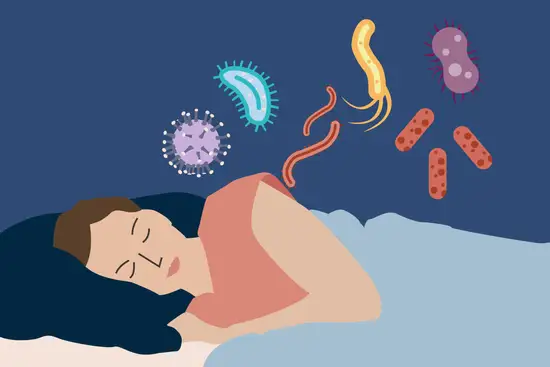Sleep is essential for maintaining overall health and well-being. It plays a crucial role in regulating the immune system, promoting mental clarity, and supporting physical recovery. However, many people sacrifice sleep in today’s fast-paced world, leading to various health problems. Understanding the relationship between sleep and immunity can help adopt better habits for a healthier life.
1. The Connection Between Sleep and Immunity
During sleep, the body undergoes repair and rejuvenation. The immune system produces and releases proteins called cytokines, which help fight infections and inflammation. When sleep is insufficient, cytokine production decreases, making the body more vulnerable to illnesses like the common cold and flu. Additionally, sleep deprivation lowers the production of infection-fighting antibodies and white blood cells, weakening the body’s defense mechanisms.
2. The Impact of Poor Sleep on Overall Health
Increased Risk of Chronic Diseases: Studies show that inadequate sleep is linked to heart disease, diabetes, and high blood pressure.
Cognitive Decline: Poor sleep affects memory, decision-making, and concentration.
Weight Gain and Metabolic Issues: Sleep deprivation disrupts hunger hormones, leading to overeating and weight gain.
Mood Disorders: Lack of sleep is associated with anxiety, depression, and irritability.
3. Tips for Improving Sleep Quality
Stick to a Schedule: Go to bed and wake up at the same time daily.
Create a Relaxing Environment: Keep the bedroom dark, quiet, and calm.
Limit Screen Time: Avoid screens at least an hour before bedtime.
Avoid Stimulants: Reduce caffeine and alcohol intake before sleep.
Exercise Regularly: Physical activity helps regulate sleep cycles.
Conclusion
Quality sleep is essential for a strong immune system and overall well-being. By prioritizing sleep and making lifestyle adjustments, individuals can improve their health, reduce disease risks, and enhance daily performance.






